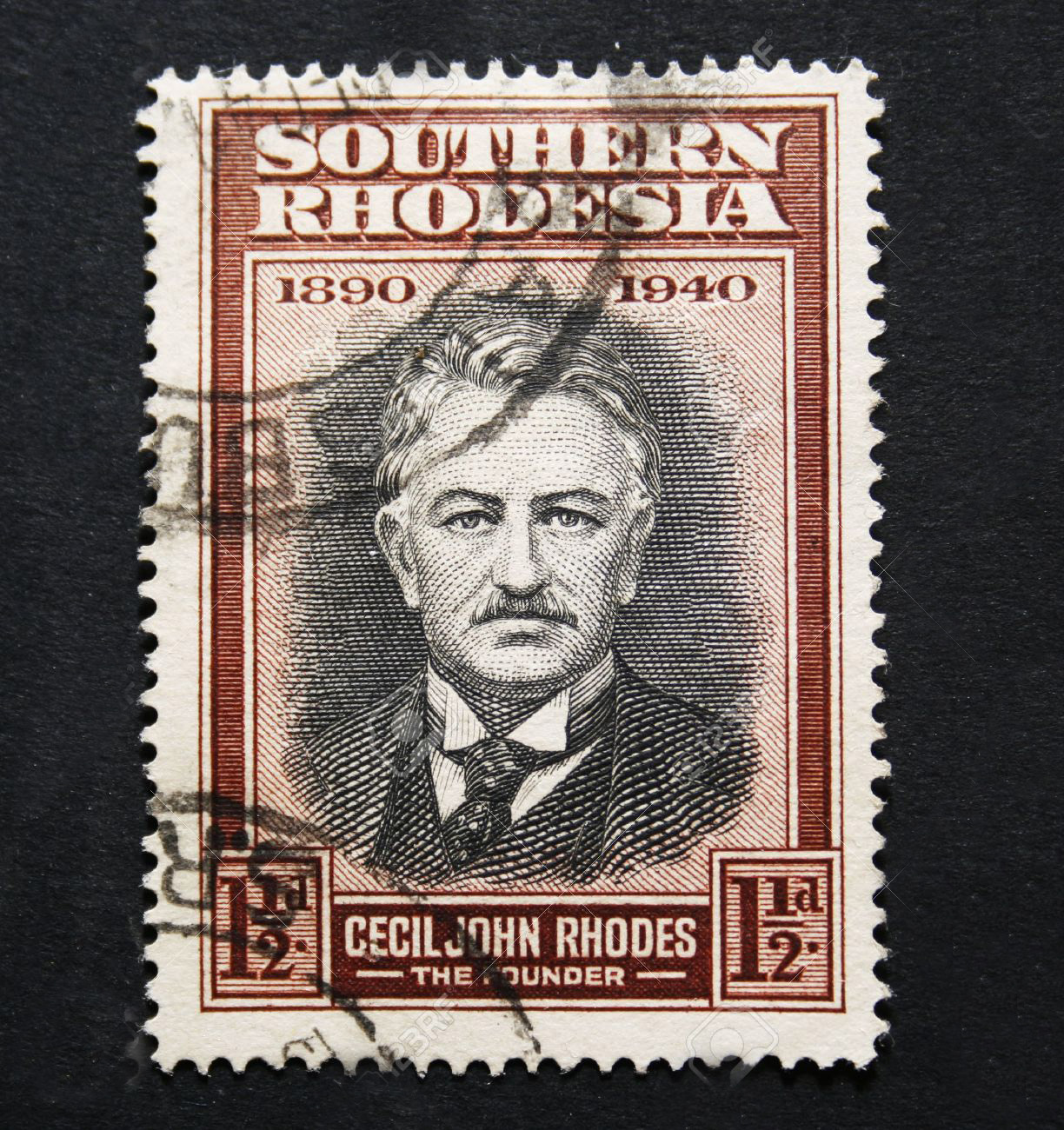CECIL RHODES
With the advent of the Black Lives Matter movement around the world in 2020, the spotlight fell on the removal of the Edward Colson statue in Bristol, England. People around the world watched as brave young people in Bristol (who would later be arrested, charged and prosecuted) used ropes and sheer force of will to pull down the statue and pitch it into the nearby harbour.
Focus then moved to the statue of Cecil Rhodes at Oriel College, Oxford University, England and the Rhodes Must Fall movement, who sought to have it removed.
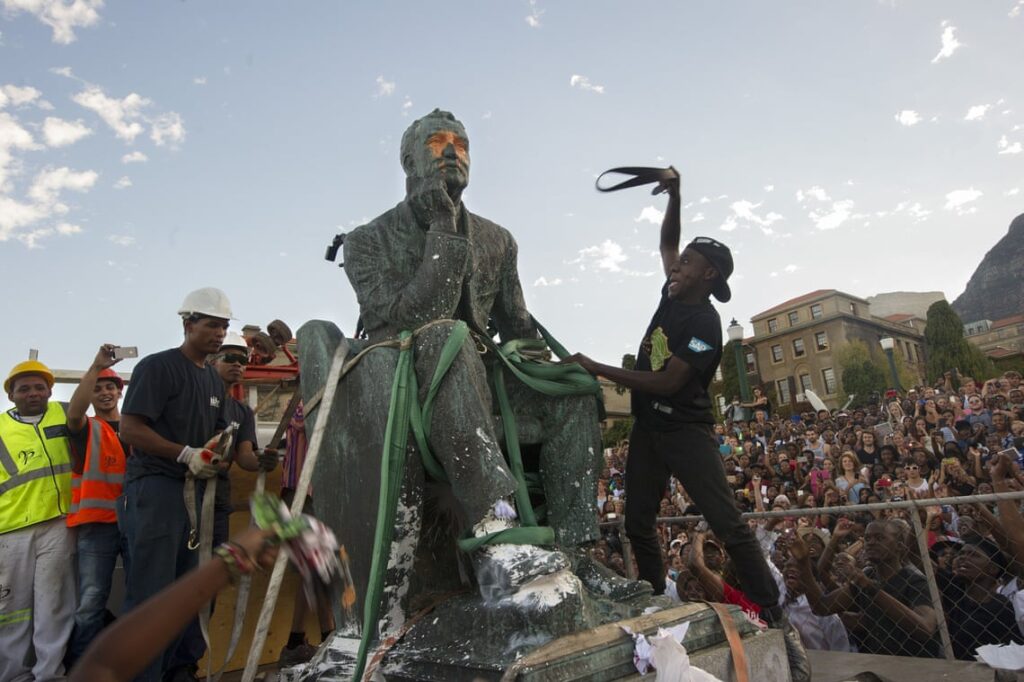
RHODES MUST FALL
The movement began in South Africa in March 2015, when Chumani Maxwele hurled a bucket of human excrement at the face of the statue of Cecil Rhodes, situated on the grounds of the University of Cape Town. For the next few weeks, students gathered around the statue, sang, marked it with graffiti and demanded its removal. They also occupied administration buildings, chanted, debated, held lectures on the history of Apartheid and shortly after, the war cry for the removal of the Rhode statue and the backlash against all things related to the Apartheid era (including the use of the language Afrikaans, which was established in South Africa by the ruling Dutch colonisers) and a hike in tuition fees, spread throughout the country.

A month after the ‘poo protest’ as it came to be known, the statue was removed.
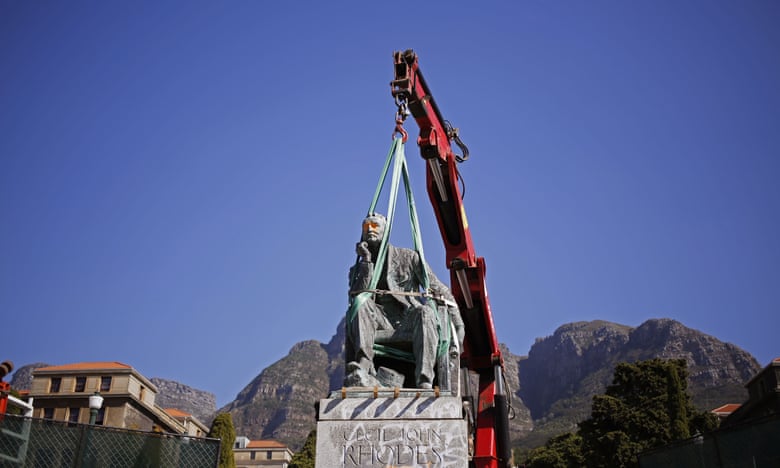
WHO WAS CECIL RHODES?
The man who would later be sufficiently convinced of his own greatness to name two colonies after himself, was born Cecil John Rhodes on 5 July 1853 in Bishops Stortford, Hertfordshire, England to Reverend Francis and his wife, Louisa. Nothing about Rhodes’ Christian upbringing struck him as being inconsistent with his later racist beliefs. The fact that the Church of England owned large and lucrative sugar plantations in the Caribbean would not have given him any reason to believe in the equality of his fellow human beings with a greater degree of melanin-enrichment than him. The Church at no time disseminated the message that slavery was evil and morally wrong and it would not be until 8 February 2006 that the Archbishop of Canterbury, Dr. Rowan Williams, would address the question of the Church’s role in the Transatlantic Slave Trade and issue an apology.
At the age of 17, in 1870, he went to South Africa to work on a cotton farm. Working with his brother Herbert, Cecil tried to make the farm in Natal successful. However, the two brothers saw a greater future in diamonds than in cotton and moved to Kimberley to pursue that ambition. After Herbert returned to England, Rhodes stayed on and made a success of diamond-mining. Using his profit, he bought up more claims to land and diamond mines and gained a partner in C.D. Rudd, forming De Beers Consolidated Mines Ltd. (By 1891, De Beers would be responsible for 90 per cent of the diamonds being produced and offered for sale.)
By 1873, rich and successful and leaving his partner in control of the mines, Rhodes returned to England and Oriel College at the University of Oxford to pursue his studies. There he was known for his imperialist ambition and (delusional) belief in the exceptionalism of the English/British.
Of the English, he is quoted as saying:
“Remember that you are an Englishman, and have consequently won first prize in the lottery of life.”
He said of the British:
“I contend that we are the finest race in the world and that the more of the world we inhabit the better it is for the human race. Just fancy those parts that are at present inhabited by the most despicable specimens of human beings what an alteration there would be if they were brought under Anglo-Saxon influence, look again at the extra employment a new country added to our dominions gives.”
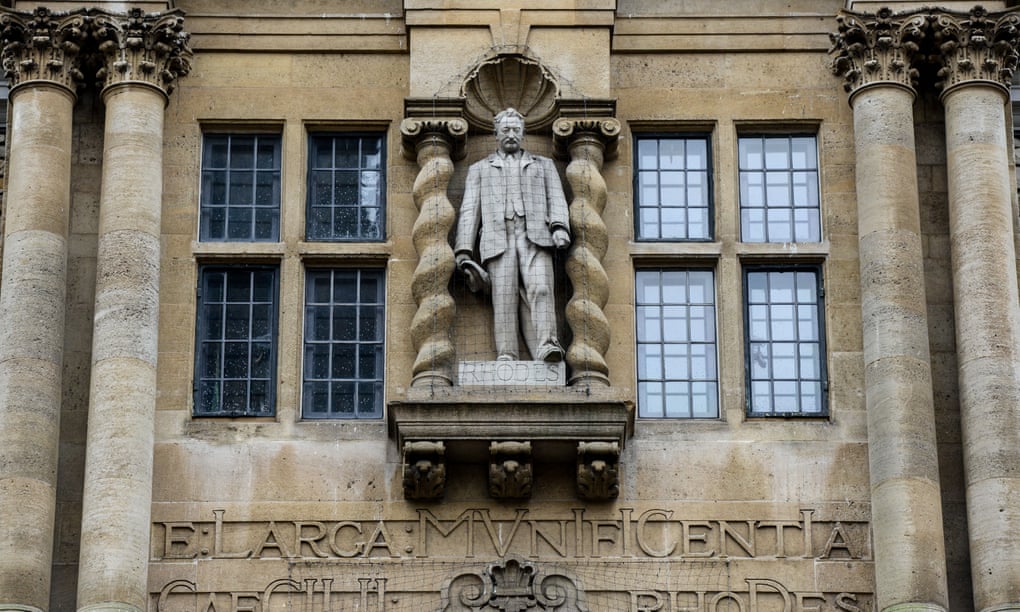
Rhodes would later give a substantial amount of money to the university, which perhaps explains why his statue was installed in a niche at Oriel College above Oxford High Street. I don’t speak Latin but Google Translate tells me the inscription underneath says he was generous gift-giver.
RHODES THE IMPERIALIST AND WHITE SUPREMACIST
He gave full voice to his odious views in his ‘Confession of Faith’ at Oxford in 1876:
Why should we not form a secret society with but one object, the furtherance of the British Empire and the bringing of the whole uncivilised world under British rule , for the recovery of the US, for making the Anglo Saxon race but one empire?
‘The object of which I intend to devote my life is the defence and extension of the British Empire. I think that object a worthy one because the British Empire stands for the protection of all the inhabitants of a country in life, liberty, property, fair play and happiness and it is the greatest platform the world has ever seen for these purposes and for human enjoyment’.
And the following year while still studying at Oxford, he added;
Whites have clearly come out on top in the struggle for existence and achieved the highest standard of human existence. Therefore I shall devote the rest of my life to God’s purpose and help him make the world English.
It is clear from his words that Rhodes believed he had a mandate from God to carry out his supremacist mission and that God was of the view that those who were not Anglo-Saxon in ethnicity were the inferior peoples of the world.
Rhodes decided to enter politics in 1881 by running for Parliament in the South African Cape Colony (the part of South Africa colonised by the British) and was successful in his endeavours.
In 1887, while still an MP, Rhodes vomited forth more racist speech in support of the Voter Registration Act which would remove the rights of the original Black people of South Africa to vote. In Parliament Rhodes said:
Does this House think it is right that men in a state of pure barbarism should have the franchise and the vote? Treat the natives as a subject people…Be the lords over them…The native is to be treated as a child and denied the franchise…We must adopt a system of despotism in our relations with the barbarians of South Africa.
Through bribery, political chicanery and under-hand dealings (as with all European nations involved in the ‘Scramble for Africa’) Rhodes acquired land which he named Southern Rhodesia (Zimbabwe from 1980) and Northern Rhodesia (Zambia from 1964) as part of the British Empire.
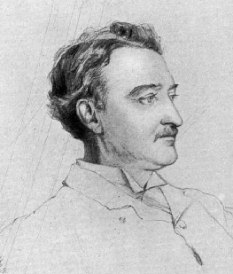
In a process of invading, looting, stealing, expropriating, enslaving, plantations, institution-building, rule-making and capital accumulation, the British Empire on the continent of Africa would increase by hundreds of thousands of miles during Rhodes’ lifetime and with his assistance.
Between 17 July 1890 and 12 January 1896 Cecil Rhodes was Prime Minister of the British administered South African Cape Colony. As Prime Minister, Rhodes was the architect of a plan devised to build up his own fortune even further capitalists which and solve the colony’s labour shortages. He drew up and received support in Parliament for legislation (the Glen Grey Act) to confine indigenous South Africans living in rural areas to reside in tribal reserves and then imposed a tax on every hut. There was no way for them to survive with no monetary means to pay the tax and they had no choice but to enter the cash economy and sell their labour to the white invaders. (It was not a coincidence that Rhodes’ De Beers mines were short of workers at the time. White men were not thought to have the constitution for working in the hot cramped and dangerous conditions and considered such work to be beneath them).
In furtherance of his white supremacist ideals, Rhodes imposed apartheid in the township areas and the Black South Africans were segregated from the colonisers in schools, prisons, hospitals, theatres and on public transport. In addition, they were disqualified from jury service and removed in their thousands from the electoral rolls. The Act also restricted their access to land and the means of production so that they could not own land in their own country or build anything whether for their pwn private or commercial use.
He was putting into practice his imperialist beliefs for as he had written in the past:
“we are the finest race in the world, and that the more of the world we inhabit, the better it is for the human race.
In his speech to the Parliament to gain their support to pass the Glen Grey Act (which they later did) he said:
“The proposition that I would wish to put to the House is this, that I do not feel that the fact of our having to live with the natives in this country is a reason for serious anxiety. In fact, I think the natives should be a source of great assistance to most of us.
At any rate, if the whites maintain their position as the supreme race, the day may come when we shall all be thankful that we have the natives with us in their proper position
…. I feel that I am responsible for about two millions of human beings. The question which has submitted itself to my mind with regard to the natives is this “What is their present state?” I find that they are increasing enormously. I find that there are certain locations for them where, without any right or title to the land, they are herded together. They are multiplying to an enormous extent, and these locations are becoming too small…. The natives there are increasing at an enormous rate. The old diminutions by war and pestilence do not occur…
We have given them no share in the government, and I think rightly, too
and no interest in the local development of their country. What one feels is that there are questions like bridges, roads, education, plantations of trees, and various local questions, to which the natives might devote themselves with good results. At present we give them nothing to do, because we have taken away their power of making war, an excellent pursuit in its way, which once employed their minds….
We do not teach them the dignity of labour, and they simply loaf about in sloth and laziness.
They never go out and work. This is what we have failed to consider with reference to our native population…
What I would like in regard to a native area is that there should be no white men in its midst.
I hold that the natives should be apart from white men, and not mixed up with them…
The Government looks upon them as living in a native reserve, and desires to make the transfer and alienation of land as simple as possible…
We fail utterly when we put natives on an equality with ourselves.
If we deal with them differently and say, ” Yes, these people have their own ideas,” and so on, then we are all right ; but when
once we depart from that position and put them on an equality with ourselves, we may give the matter up…
As to the question of voting, we say that the natives are in a sense citizens, but not altogether citizens, they are still children….” A full copy of the speech can be read here: https://www.sahistory.org.za/archive/glen-grey-act-native-issue-cecil-john-rhodes-july-30-1894-cape-house-parliament
Rhodes clearly acknowledges that the country belongs to the indigenous people but is comfortable with the idea of ruthlessly riding roughshod over their rights as human beings in any event. His utter contempt for anyone who is not white is clear. This demonstrates the callous and depraved mindset of the invading nations prevalent at the time, and their boundless capacity for morally unjustifiable oppression and the stereotypes and tropes rolled out in support of English superiority are still very much active in the thinking of subsequent British governments. It is also evidently operational in the racial discrimination and institutional racism afflicting the British citizens who are not of Anglo-Saxon origin in Britain and Northern Ireland today, and informs much of the foreign policy of the UK.
Not content with his exploitation of the original people of South Africa and his significant accumulation of wealth from stealing their natural resources, Rhodes became lustful for the high yield gold mines being exploited and stolen by the Dutch Republic of the Transvaal. So in 1895, Rhodes supported and financed a disastrous and unsuccessful attack on the Transvaal, the Jameson Raid, which was organised in support of a rebellion that would deliver control of the region’s goldmines to him. The raid was a catastrophic failure and Cecil was forced to resign as Prime Minister, bringing his political career to an end.
A further consequence of Rhodes’ avarice and arrogance was that the Jameson Raid played a role in instigating the start of the 1899 Boer War but he would not see its end, as he died of a heart attack on 26th March 1902, aged 49. Having left South Africa a legacy of oppression and racial injustice that resonates and sheds more blood within its boundaries to this day and England a larger Empire built on moral depravity, exploitation and murder, Rhodes departed the earth a celebrated and venerated man.
In his will Cecil left a fortune in excess of £3 million to fund the famous Rhodes scholarships that enable students, primarily from former British territories, to study at Oxford University.
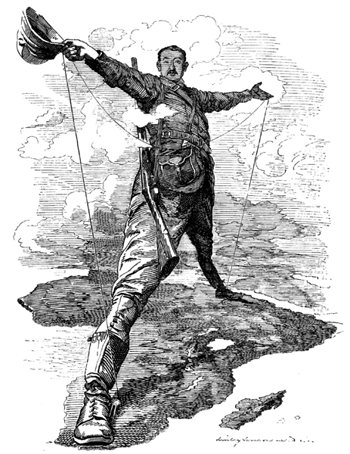 ‘The Rhodes Colosuss striding from Cape Town to Cairo’, from Punch Magazine, 1892
‘The Rhodes Colosuss striding from Cape Town to Cairo’, from Punch Magazine, 1892
RHODES’ WILL ESTABLISHING THE RHODES SCHOLARSHIP
Rhodes’ Will can be seen here: https://www.rhodeshouse.ox.ac.uk/media/1141/willandcodicils.pdf
The Will establishes scholarships for “the education of young Colonists” to “instill into their minds the advantage to the Colonies as well as to the United Kingdom of the retention of the unity of the Empire.” It has been amended a number of times since his death, including an amendment to allow women to benefit from the scholarships in 1976.
Recipients of the Rhodes/Colonial Scholarship include:
Alain LeRoy Locke, Philosopher and writer, 1907, USA
Norman Manley, Prime Minister, 1914, Jamaica
Stuart Hall, Writer and Political Activist, 1951, Jamaica (see also The Stuart Hall Project)
Rex Nettleford, Dance Director, Vice Chancellor of the University of the West Indies, Writer, 1957, Jamaica (see also Rex Nettleford)
RHODES IS STILL BLIGHTING THE LANDSCAPE OF AFRICA
Not merely figuratively but also literally.
The gravesite of Rhodes is in Zimbabwe and is a popular tourist attraction. It is periodically subjected to vandalism and is rumoured to be the subject of a plot to dig up his remains and throw them in the Indian Ocean. To date, the plot has not been executed.
THE RHODES STATUE AT ORIEL COLLEGE
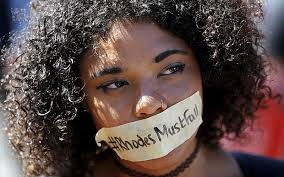
On 17 June 2020, the governors of Oxford University, England voted to remove the statue of Rhodes at Oriel College: https://www.bbc.co.uk/news/education-53082545.
Sources:
Zimbabwe-today.com
sahistory.org.za



